Rocky start: Chaos erupts in Indonesia as Prabowo Subianto rolls out ambitious policies
Less than five months into the new government’s term, the slashed budget, whiplashing policy reversals and a president fortressed from unpopular views, have raised doubts over whether it can achieve its lofty ambitions.

Hammered by protests and bad press over econonomic policies that have left Indonesia reeling, Prabowo Subianto turned to US hedge fund manager Ray Dalio this month to give a pep talk on the country’s growth prospects to some of the country’s wealthiest business magnates.
The billionaire investor chose his words at the presidential palace with care.
The Southeast Asian nation was at a “take-off point” similar to that he had seen in China under Deng Xiaoping, and in Singapore under Lee Kuan Yew, thanks to its relatively low debt and fresh capital liquidity carved from recent budget savings and a newly established sovereign wealth fund, he said.
The big task now was to lift health outcomes for its 280 million people, remove entrenched bureaucratic obstacles, and watch for corruption.

As the business titans – many of whom owe their wealth to government patronage – listened politely, tens of thousands of civil servants in government buildings and offices across Indonesia braced for the new daily 4pm shutdown of lights, airconditioners and lifts that have become a widely mocked symbol of President Prabowo’s efficiency drive.
The edict has brought visceral meaning to recent so-called “Dark Indonesia” protests over $20bn budget cuts designed to free funds for a suite of expensive policy priorities aimed at driving Indonesia’s economic growth, even as they grind the country’s bureaucracy to a halt.
Less than five months into the Prabowo administration’s five-year term, angry rallies have rippled across the country over austerity measures that have affected everything from education and health budgets, to public works, tsunami alerts, witness- and child-protection budgets and public hospital tissue stocks.
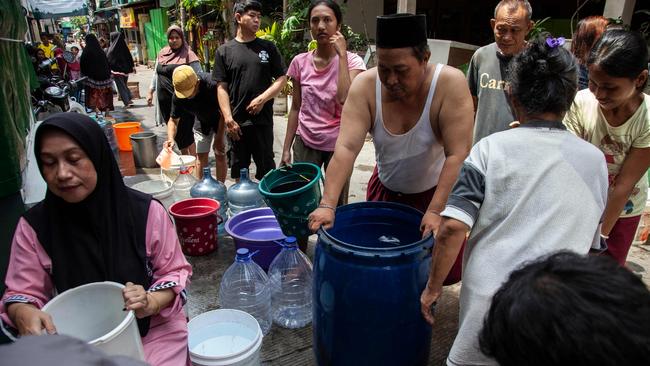
Money for elementary education has been slashed 24 per cent, higher education 39 per cent and health ministry 18.5 per cent, while public works has suffered a massive 73 per cent cut, forcing the layoff of more than 18,000 contractors, slashing budgets for road maintenance and bridge construction.
Government diplomats and trade negotiators, whose jobs depend on travel, have had their travel budgets wiped out. At least one key minister is said to spend more time at Prabowo’s campaign headquarters in leafy south Jakarta than in ministerial offices.
Only the military, police and ministry responsible for the President’s flagship $32bn Free School Meals program have escaped the cuts, though Prabowo has hinted at more to come with money tipped to be diverted from the disaster mitigation fund of one of the world’s most earthquake-prone countries.

Fresh protests broke out this week as 1.2 million new public servants and government contractors digested news that the jobs they were to begin as early as this month were being deferred until October or even next year.
Among those affected is Zakariya Dzulqarnain, a 30-year-old father of one, who said the decision had caused mayhem.
“People are saying, how are we supposed to wait until October? What will my family eat? How about my kids? Looking for a job that only lasts seven months isn’t easy,” he said.
“Some have had to sell things to get by. For me, the impact is personal. I have to start over and rethink my path.”
The parallels with the radical upheavals of US President Donald Trump’s first weeks are striking, even if some analysts have warned against drawing simplistic comparisons.
“What Trump is doing is abolishing positions that lead to budget reductions,” Indonesia expert and Australian National University associate professor Marcus Mietzner said this week during an ANU-hosted analysis of the Prabowo administration’s chaotic first months.
“Prabowo is keeping all positions because he explicitly does not want to fire anybody but instead cuts operational budgets.”
That had left tens of thousands of public servants with “nothing at all to do”, Mietzner said.
“Some are told to sit at home because at the ministry there’s no light or air-conditioning. I know a lot of people in his inner circle disagree with what he’s doing but no one is telling him that this is a disastrous thing to do.
“(Prabowo) has these big ideas about budget leaks, about food sovereignty, about stunting, but no clear policy plan about how do you do that.”
As another observer noted: “It’s causing a level of chaos that is unusual even for Indonesia.”
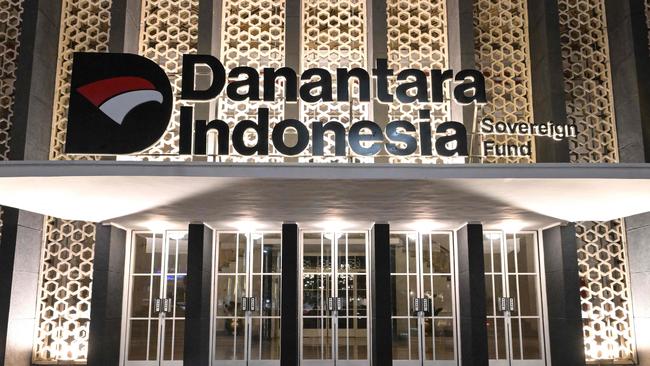
If that wasn’t enough to scare the horses, the recent launch of the new Danantara sovereign wealth fund – which draws Indonesia’s most valuable state-owned enterprises worth more than $1.43 trillion under one umbrella – has raised concerns over the government’s increasing market involvement.
Prabowo wants Danantara to be Indonesia’s Temasek, Singapore’s much-admired sovereign wealth fund, and for it to help drive the economy towards his 8 per cent annual growth target by underwriting big-dollar projects such as the school meals scheme, a domestic oil refinery industry and more downstream processing of raw commodities.
But many Indonesians fear it could be the next 1MDB – the Malaysian state development fund that became a multi-billion dollar political slush fund – pointing to a supervisory board stacked with cronies answerable only to the president.
Dividends from those state-owned companies will now flow into Danantara, not the coffers of the finance department whose admired and long-serving minister, Sri Mulyani, was reportedly excluded from the process. The wealth fund will be subject to independent, but not state, audits.
As The Economist recently noted dryly: “Never before has so much of Indonesia’s wealth been placed at the discretion of one man.”
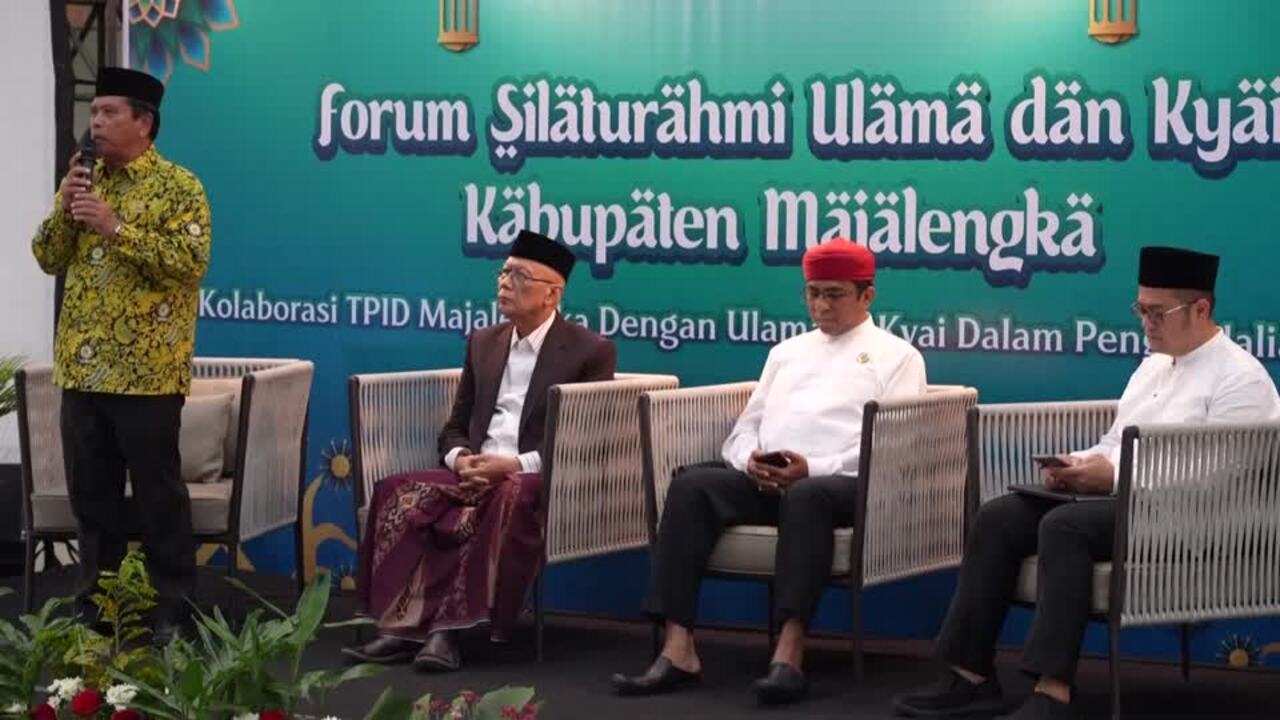
Predictably, investors and markets have reacted poorly to the measures.
Fitch ratings agency this week tipped Indonesia’s rupiah, already “one of the poorest performing currencies in the region so far this year”, would weaken further thanks to Prabowo’s abrupt shift in spending plans.
“It looks messy from the outside because it is messy,” says Yanuar Nugroho, a visiting senior fellow at Singapore’s ISEAS-Yusof Ishak Institute and first-term former deputy chief of staff to ex-president Joko Widodo, or Jokowi, as he is known.
“There is a lot of concern about the way things are operating. What many are worried about most is that the president is being isolated from what’s really going on so when he delivers speeches what he is saying is very different from reality.”
Prabowo’s biggest problem, says Nugroho, is he cannot accept the state can’t afford all his ambitious policies and also maintain essential government services.
“We’re not broke yet but if this continues I think our economic conditions will get worse very soon. You need to be vigilant because if the middle class are unhappy, change will start from them.”
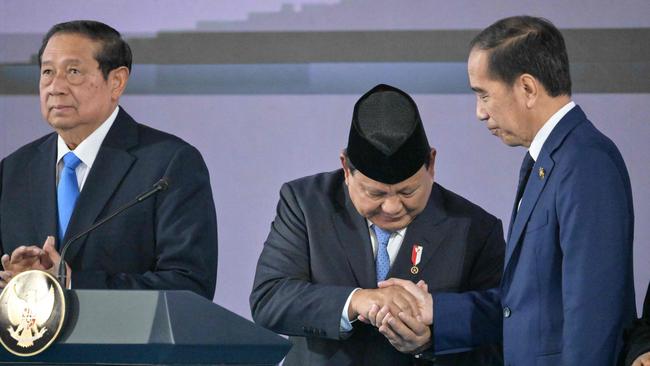
Prabowo Subianto won a big election mandate in February last year on a promise to address Indonesia’s severe child-stunting problem by providing one nutritious meal a day for more than 80 million students. He also pledged to deliver the 8 per cent annual growth required to elevate Indonesia into developed nation status by 2045.
In reality, however, he owes his victory to the support of his popular predecessor Jokowi – whose son Gibran now serves as Vice-President – and a team of spin doctors who convinced enough voters that a former Special Forces commander with a sketchy human rights record had mellowed into an elder statesman committed to continuing Jokowi’s policies.
From his Valentine Day win to his inauguration on October 20, Prabowo had a full eight months to work out how to deliver on his promises.
Yet almost five months into his new administration, his bloated cabinet – with a record 109 ministers and deputies from 10 different parties – is said to be hobbled by factionalism, demarcation disputes, weak oversight and overlapping regulations.
In his Presidential Palace pep talk last week, Dalio underscored the importance of a leader who could “make those very difficult reforms…energise and capitalise and also overcome the barriers of corruption that stand in the way”.
“From speaking to President Prabowo, I think he can be that man,” he said.
Prabowo certainly came hard out of the blocks in his first weeks as President with a military-style boot camp for his cabinet ministers designed to build camaraderie.
Australia’s five remaining Bali Nine drug convicts were surprise early beneficiaries of his largesse, when they were put on a list of long-serving foreign prisoners to be repatriated to their home countries after decades in jail.
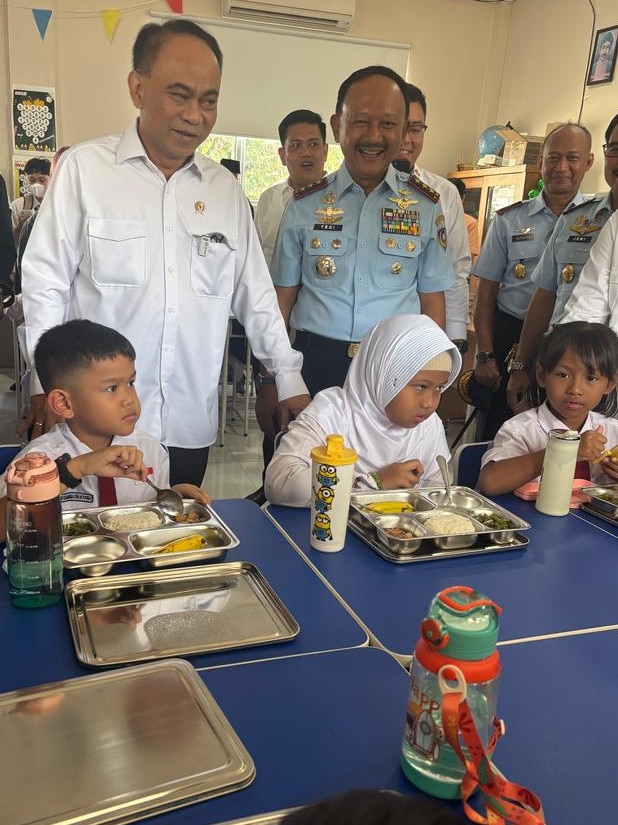
A series of international state visits also allowed the foreign-educated Prabowo to demonstrate his ease on the global stage, even if it did result in the first major policy blunder.
In his first state visit to China the new President broke with longstanding Indonesian foreign policy by signing a joint statement with Xi Jinping acknowledging Beijing’s long-disputed insistence that the two countries have overlapping maritime claims in the South China Sea.
Was it inexperience or a shocking surrender of sovereignty? Indonesia’s foreign ministry quickly issued a clarification, but the damage was done.
“That really played to China’s advantage and concerned some of Indonesia’s neighbours because it suggested he would not embed a wider regional view in his foreign policy and instead pursue a transactional deal-based approach,” says Lowy Institute Southeast Asia program director Susannah Paton.
Likewise Prabowo’s snap decision to join BRICS, the China-led alliance of developing nations, appeared motivated more by a desire to please Beijing than any broader policy plan, given Indonesia’s increasing reliance on Chinese investment.
“It’s not clear what Prabowo’s regional policy is. How does he think Indonesia could help ASEAN respond to the current geopolitical environment?” Paton said.
“There is a lack of clarity on that and that’s a problem for the rest of the region because without Indonesia the group really lacks a leader who’s capable of bringing countries together and driving through ideas.
“A lot of it just seems a bit bungling and inefficient.”
Jakarta’s reliance on Beijing will only grow in the absence of a clear strategy to balance partners and diversify relationships – a trend that Australia will need to watch closely given the long-term implications for Indonesia’s alignment.
For all Prabowo’s apparent ease on the international stage, a very different picture is emerging at home of an insular president accessible to a tiny inner circle of confidantes and gatekeepers who tell him only what he wants to hear.

Cabinet meetings are said to consist largely of presidential monologues with ministerial queries handled by Prabowo’s cabinet secretary, Teddy Indra Wijaya, a serving military officer.
“He’s surprisingly isolated from even senior ministers and quite alienated from Indonesia’s technocratic elite,” Liam Gannon, editor of ANU’s Southeast Asia blog New Mandala, said at the university-hosted talk this week.
Quarantined from a broader range of opinions and counsel, Prabowo has proven highly sensitive to public discontent. Recent proposals to remove subsidies for household cooking gas and increase VAT were abruptly reversed at the first signs of anger.
Late last month, Higher Education Minister Satrya Brodjonegoro was forced to resign over student protests at budget cuts he had warned would likely force up university fees.
Government spokesmen say that all proves the administration is listening to the people.
But Ismail Khozen, a researcher with Indonesia University’s Pratama Institute for Fiscal Policy and Governance Studies, says the protests reflect a “deep public anxiety over the tightening grip of the elites on state policies”.
“The dominance of business actors in government is no longer a mere suspicion, it’s an undeniable reality,” he said.
Corruption Watch figures show 354 out of 580 current MPs have business backgrounds, with minister magnates more a norm than exception.
“The risk of conflicts of interest have skyrocketed. Democracy...is being hijacked by an oligarchy seeking to preserve its power,” Ismail wrote in The Jakarta Post this week.
Nepotism is also rife; Prabowo has a brother, nephew and “ideological son” in key positions, while military allies have been placed in key positions across the political spectrum, including serving officers in contravention of post-Suharto laws that are under review.
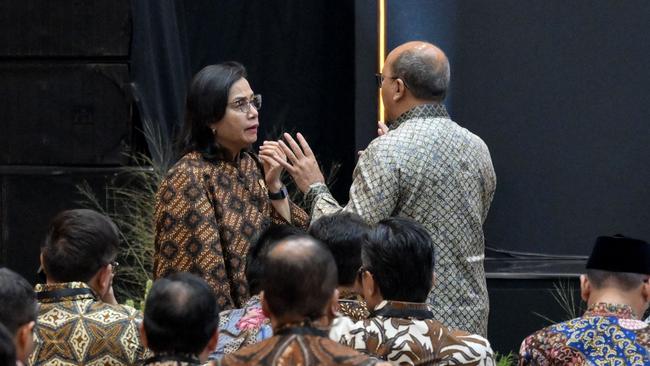
The military has also been charged with rolling out the free school meals program and opening new food estates in restive Papua province.
At a rare interaction with Jakarta foreign correspondents this week, presidential spokesman Philips J. Vermonte faced a barrage of questions over the ongoing government chaos and creeping military involvement in civilian affairs.
The military was best qualified to deliver broad-sweeping social schemes even if its participation in government had been overstated, he said. Government cuts were “not austerity (measures) but a budget efficiency program” targeting wasteful spending rather than services.
“Of course the government understands it will create some reaction from the public and adjustments will be made,” he said.
Asked about Prabowo’s rumoured insularity, he insisted “the President is really involved in the policies” of government.
Such a rocky start might reasonably be expected to add up to a political catastrophe.
Yet Prabowo’s popularity hovers at an astonishing 80 per cent thanks to a coalition government that includes all but one parliamentary party.
It is a cushion most politicians could only dream of, though one that may not prove so reliable should Prabowo’s risky budget cuts hit Indonesians’ hip pockets.
With Dian Septiari





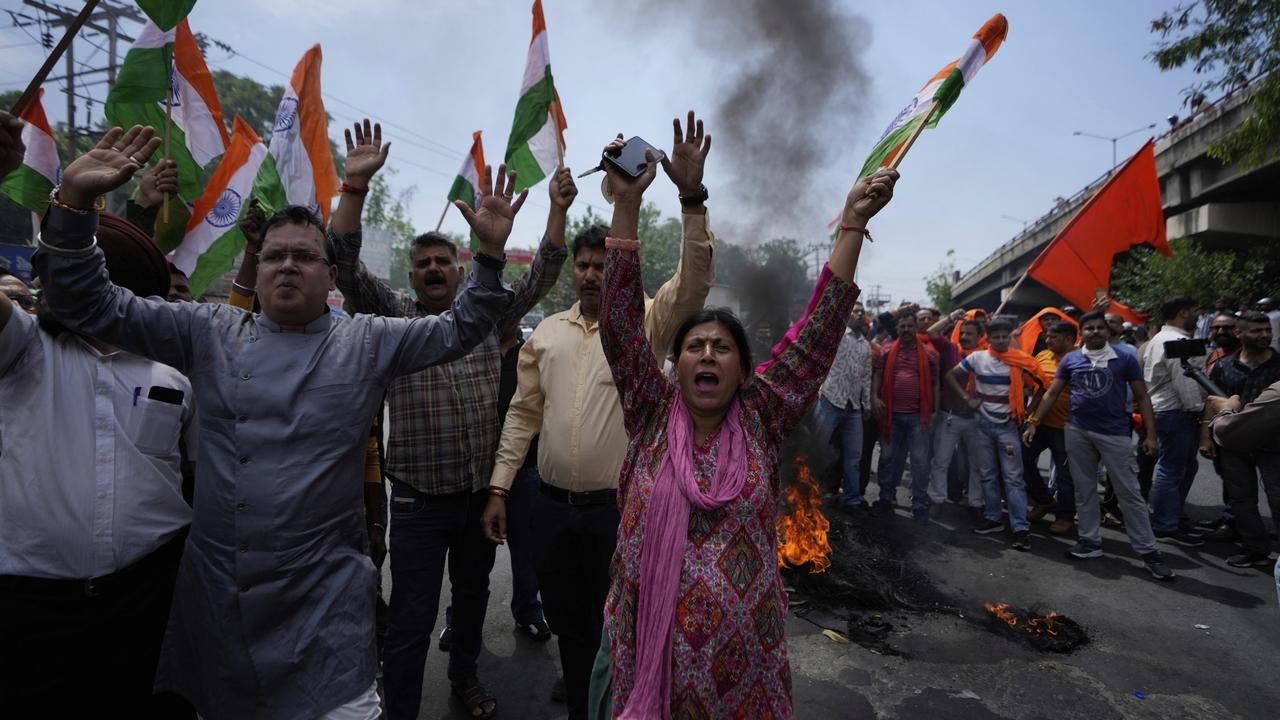
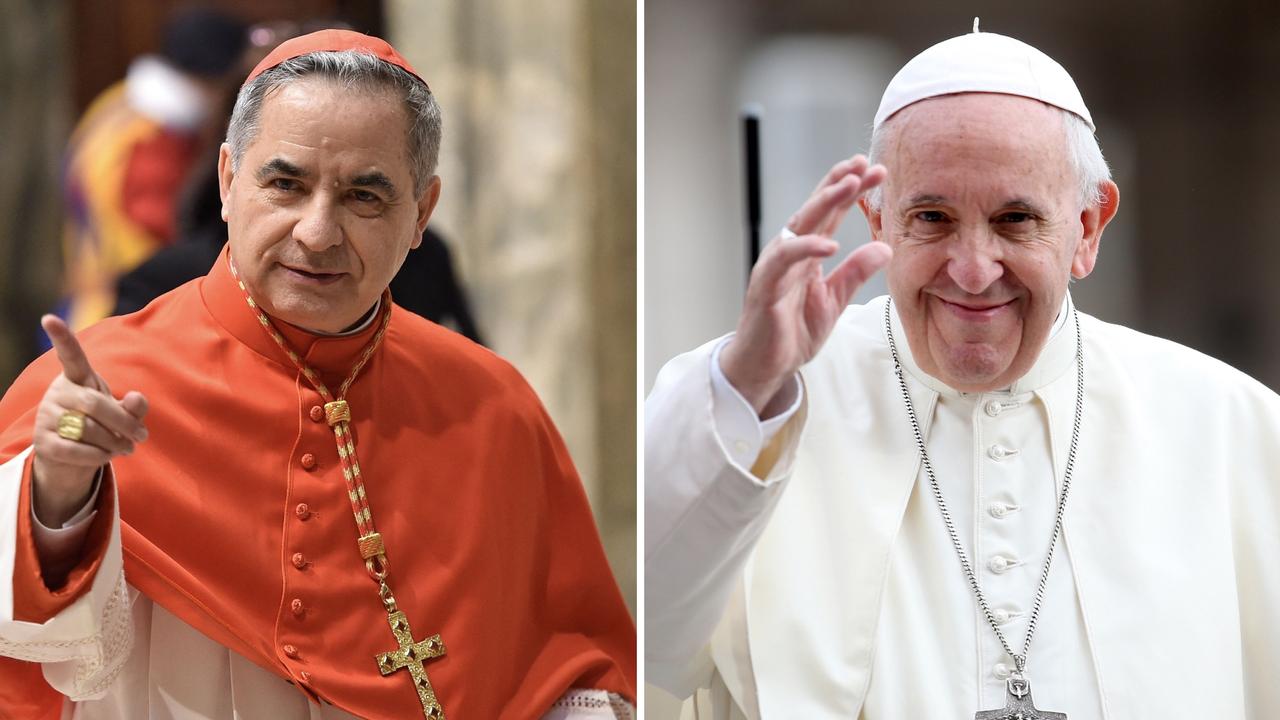
To join the conversation, please log in. Don't have an account? Register
Join the conversation, you are commenting as Logout